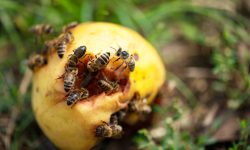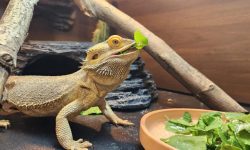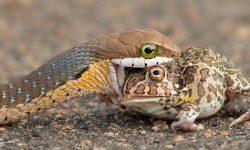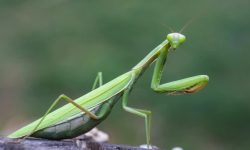Turkeys are some of the most iconic birds in North America, recognized for their striking feathers, confident strut, and curious personalities. But beyond their distinctive looks, one question often fascinates bird enthusiasts and farmers alike: what do turkeys eat?
These large, omnivorous birds have a surprisingly diverse diet. Whether wild or domestic, turkeys consume a mix of plants, insects, seeds, and small animals — adjusting their feeding habits based on the season and habitat. This varied diet helps them stay strong, maintain healthy plumage, and thrive in different environments.
In this article, we’ll explore 20 natural foods that turkeys love the most, how their feeding behavior changes with the seasons, and what makes their diet essential for both survival and growth.
Understanding the Turkey Diet
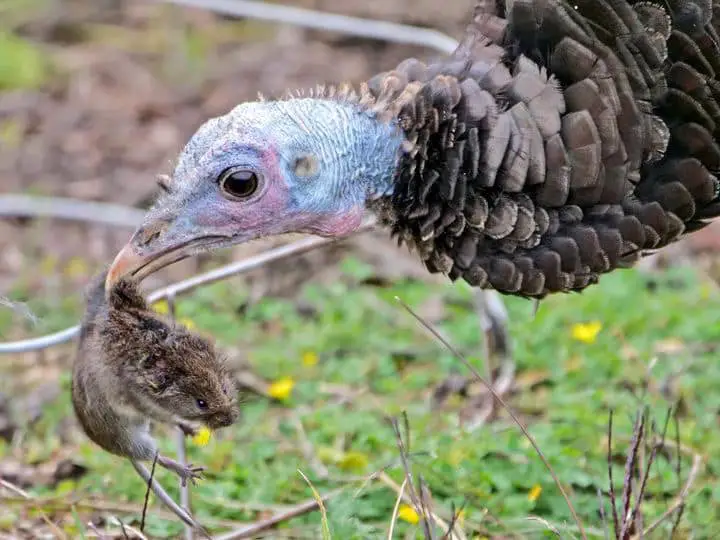
Turkeys Are Omnivorous Feeders
Turkeys are omnivores, meaning they eat both plant and animal matter. In the wild, their diet depends heavily on availability — they might feast on berries in summer, insects in spring, and nuts or grains in fall. This adaptability allows turkeys to survive in forests, grasslands, and even farmlands.
Their digestive system is designed to process a wide range of foods. Turkeys have a crop that stores food and a gizzard that grinds it down with the help of small stones or grit. This natural mechanism enables them to break down tough seeds, grains, and even fibrous plant material efficiently.
Seasonal Feeding Habits
Wild turkeys change their diet throughout the year. Insects dominate their meals during spring and summer, providing essential protein for growth and reproduction. In autumn, they turn to high-energy foods like acorns, grains, and seeds to prepare for the cold months. During winter, they rely on whatever vegetation, nuts, or leftover grains they can find under the snow.
The Difference Between Wild and Domestic Turkeys
Domestic turkeys, often raised on farms, have similar nutritional needs but depend on humans for balanced feed. Farmers typically provide commercial grain mixes supplemented with fresh greens, fruits, and insects. Wild turkeys, on the other hand, forage naturally, relying on instinct and the changing seasons to meet their dietary needs.
20 Natural Foods That Help Turkeys Thrive
1. Acorns
Acorns are one of the most important foods for wild turkeys, especially in autumn and winter. These nuts provide high-fat content that helps them build energy reserves for cold weather.
Turkeys use their strong beaks to crack open acorns or swallow smaller ones whole. Oak forests with abundant acorns often attract large flocks of turkeys during fall.
Rich in carbohydrates, oils, and minerals, acorns help maintain body warmth and stamina during harsh conditions when insects and berries are scarce.
2. Seeds
Seeds make up a significant portion of a turkey’s diet year-round. They forage for grass seeds, weed seeds, and leftover grains from crops.
In agricultural areas, turkeys benefit from spilled corn, wheat, and sunflower seeds left after harvest. These tiny foods are packed with calories and vital nutrients.
Eating seeds provides fiber and sustains energy, making them essential for daily foraging activity and overall vitality.
3. Berries
Berries are a summer favorite for turkeys. They’re full of natural sugars, vitamins, and hydration — perfect for keeping turkeys active during hot weather.
Wild turkeys eat a variety of berries, including blackberries, raspberries, elderberries, and wild grapes. These fruits are easy to spot and digest, and they ripen in abundance throughout summer.
Berries also help strengthen the immune system, supporting vibrant feathers and reproductive health.
4. Grass and Clover
Turkeys often graze on fresh green plants like grass, clover, and alfalfa. These greens add fiber to their diet and help with digestion.
In spring, young shoots and tender clover leaves are particularly appealing, providing essential nutrients and moisture.
This plant matter complements their protein intake from insects, balancing their diet and supporting natural foraging behavior.
5. Insects
Insects are a crucial source of protein for turkeys, particularly for poults (young turkeys) that are still growing.
Grasshoppers, beetles, ants, and caterpillars make up a large portion of their diet in the warmer months. Turkeys use quick pecks to catch moving insects hidden in grass or soil.
Protein from insects fuels muscle growth, egg production, and feather regeneration — all vital for survival and reproduction.
6. Worms
Earthworms are another excellent source of protein and moisture. Turkeys scratch the soil with their strong feet to uncover worms, especially after rainfall.
These soft-bodied creatures are easy to digest and highly nutritious. Worms also help turkeys stay hydrated, which is particularly important in dry seasons.
Their habit of turning over soil in search of worms also benefits ecosystems by aerating the ground and dispersing seeds.
7. Grasshoppers
Grasshoppers are one of the most common insect foods for turkeys. They’re abundant, easy to catch, and full of energy.
Adult turkeys hunt grasshoppers in open fields and meadows, especially in late summer when populations peak.
The high protein and fat content of grasshoppers helps turkeys maintain muscle tone and recover from molting.
8. Beetles
Beetles are small but nutritionally dense. Turkeys eat both adult beetles and larvae found under logs, leaves, or compost piles.
Beetles provide high-quality protein, iron, and essential amino acids that support strong bones and vibrant plumage.
Turkeys also play a role in pest control by naturally reducing beetle populations in gardens and farmlands.
9. Snails
Snails are a surprisingly common food for turkeys, especially in damp or forested areas. Their soft bodies and calcium-rich shells make them both nutritious and easy to digest.
Turkeys forage for snails under rocks and leaf litter after rain. The calcium from snail shells strengthens bones and eggshells in laying hens.
This food is particularly valuable during spring nesting season when females need extra nutrients.
10. Small Reptiles
Occasionally, wild turkeys eat small reptiles like lizards or young snakes. Though rare, this behavior demonstrates their opportunistic nature.
Reptiles provide a dense source of protein and fat, supplementing their insect-based diet.
These meals are more common in southern regions or forested environments where small reptiles are abundant.
11. Nuts
Besides acorns, turkeys also consume hickory nuts, pecans, and beechnuts when available. Nuts are high in calories and healthy fats.
Turkeys peck open the shells or swallow small ones whole, using grit in their gizzard to grind them.
Nuts are especially important in fall and winter, providing energy reserves for survival during food-scarce months.
12. Corn
Corn is one of the most popular foods for domestic and wild turkeys alike. It’s energy-dense, tasty, and readily available in farm areas.
Wild turkeys often feed on leftover corn kernels from harvest fields. Domestic turkeys are commonly given cracked or whole corn as part of their feed.
This carbohydrate-rich food helps maintain energy, making it perfect for colder months.
13. Soybeans
Soybeans are another agricultural crop turkeys love. They offer a great balance of protein and fat, making them highly nutritious.
Turkeys frequently forage in soybean fields for fallen pods, especially after harvest.
In domestic diets, soybean meal is often included in feed mixes to promote steady growth and healthy feather production.
14. Peas and Legumes
Peas, lentils, and other legumes provide natural plant-based protein for turkeys. Wild turkeys often eat these when found growing near farmlands.
For domestic turkeys, peas can be included as a supplement in feed. They provide fiber, vitamins, and minerals that improve digestion and metabolism.
Legumes also encourage turkeys to forage, keeping them active and healthy.
15. Fruits
Turkeys enjoy a wide range of fruits, including apples, pears, grapes, and cherries. These foods are rich in sugar, vitamins, and water.
They peck at fallen fruit or climb low branches to reach ripened ones. Fruits are especially popular during late summer and early fall when they’re plentiful.
This natural sweetness adds variety and hydration to a turkey’s diet, keeping them active and alert.
16. Grains
Grains such as wheat, barley, and oats are a fundamental part of a turkey’s diet, providing long-lasting energy.
Wild turkeys forage for spilled grains near fields, while domestic turkeys receive mixed grain feeds.
The carbohydrates and minerals in grains help turkeys maintain stamina and body warmth, particularly in cooler seasons.
17. Weeds and Wild Plants
Turkeys consume a variety of wild plants, including dandelions, chickweed, and plantain leaves. These greens supply essential vitamins and aid in digestion.
By foraging naturally, turkeys also help control weed populations in their habitat.
This food type provides a detoxifying effect, supporting liver health and overall vitality.
18. Grass Seeds
Grass seeds are one of the most accessible and continuous food sources for wild turkeys. They’re available in most open areas year-round.
Turkeys pick at grass seed heads while foraging through meadows or pastures. These seeds offer carbohydrates and trace nutrients for sustained energy.
They’re particularly beneficial for juvenile turkeys developing muscle strength and coordination.
19. Caterpillars
Caterpillars are soft, protein-rich insects that turkeys adore during spring. They’re plentiful and easy to catch.
Feeding on caterpillars helps young turkeys grow quickly and provides adults with nutrients for feather molting.
This diet also helps control pest populations naturally, benefiting the ecosystem.
20. Mushrooms
Mushrooms are a less common but valuable food for turkeys. Wild turkeys occasionally consume fungi found in moist forests.
These mushrooms provide B vitamins and trace minerals that support metabolism and feather quality.
By eating fungi, turkeys also spread spores, helping maintain forest biodiversity.
Frequently Asked Questions (FAQs)
Do turkeys eat meat?
Yes, turkeys are omnivores and sometimes eat small reptiles, insects, or even amphibians, especially when protein is needed.
What do baby turkeys (poults) eat?
Young turkeys primarily eat insects, small seeds, and tender greens. These foods support rapid growth and feather development.
Do turkeys eat corn every day?
Corn is a favorite food but should be part of a varied diet. Overfeeding corn can lead to obesity in domestic turkeys.
What do wild turkeys eat in winter?
In winter, they feed mainly on acorns, nuts, grains, and leftover crops when insects and greens are scarce.
Can domestic turkeys eat fruit and vegetables?
Absolutely. Fruits and vegetables provide hydration, vitamins, and enrichment in their diet.
Conclusion
Turkeys are highly adaptable eaters with one of the most varied diets in the bird world. From seeds, nuts, and grains to insects and small reptiles, every food they consume plays a role in their survival and health.
This omnivorous flexibility allows both wild and domestic turkeys to thrive in forests, farmlands, and open plains. Their diverse diet not only keeps them strong and active but also contributes to ecosystem balance by controlling pests and spreading seeds.
So, next time you see a turkey foraging, remember — it’s not just pecking aimlessly at the ground. It’s carefully selecting a mix of nature’s finest foods to stay healthy, resilient, and thriving in every season.

